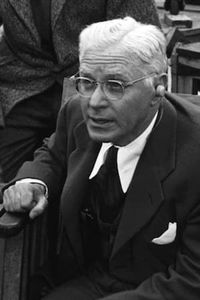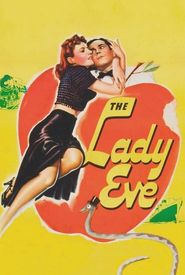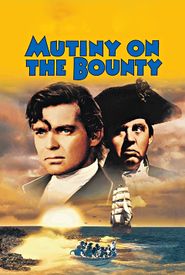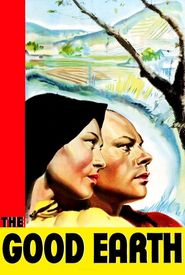Albert Lewin, a highly accomplished and versatile American film professional, embarked on a remarkable journey that spanned multiple decades, showcasing his remarkable adaptability and unwavering dedication to the craft.
As a pioneering figure in the film industry, Lewin's career was marked by a diverse array of roles, each one a testament to his boundless creativity and unyielding passion for storytelling.
Throughout his illustrious career, Lewin's impressive repertoire included stints as a writer, director, and producer, solidifying his status as a true Renaissance man of the silver screen.
Lewin's life commenced on September 23, 1894, in the bustling metropolis of Brooklyn, New York, a city that would forever leave its imprint on his formative years. As he grew up, Lewin's family relocated to Newark, New Jersey, a move that would shape his childhood and lay the foundation for the individual he would become.
As Lewin's academic pursuits began to take center stage, he set his sights on the esteemed Harvard University, where he would go on to earn a Master's degree. This impressive achievement would not only mark a significant milestone in his educational journey but also serve as a testament to his unwavering dedication to his craft.
Following his academic endeavors, Lewin's passion for education led him to take on a new role as an English instructor at the University of Missouri. This position would not only allow him to share his knowledge with others but also provide him with the opportunity to further hone his skills as a teacher and mentor.
Lewin's wartime exploits began with his military service during World War I, where he undoubtedly acquired valuable skills and experiences that would later benefit him in his civilian pursuits.
Upon his return from the war, Lewin was appointed to a prestigious position as assistant national director of the American Jewish Relief Committee, a testament to his leadership abilities and commitment to his community.
In the aftermath of the war, Lewin's diverse talents were showcased as a drama and film critic for the Jewish Tribune, a role he held until the early 1920s.
Throughout his career, Lewin's unique blend of military service, community leadership, and cultural critique set him apart as a multifaceted individual with a profound impact on his community.
Lewin's remarkable odyssey to the heart of Hollywood's film industry commenced with his esteemed appointment as a reader for the illustrious Samuel Goldwyn, a pioneer in the realm of cinema. Subsequently, he honed his skills in the art of storytelling by serving as a script clerk for two of the most respected and accomplished directors of his time, King Vidor and Victor Sjöström, who had already made indelible marks on the industry with their groundbreaking work. Ultimately, in 1924, Lewin's talents and dedication earned him a coveted position as a screenwriter at the prestigious MGM studios, where he would go on to contribute to the creation of numerous iconic films that would captivate audiences worldwide.
As Lewin's professional trajectory unfolded, he ascended the corporate ladder, eventually assuming the esteemed position of head of the studio's script department. By the late 1920s, his exceptional skillset and expertise had earned him the distinguished honor of being appointed as the personal assistant and most trusted confidant of the illustrious Irving Thalberg.
Notwithstanding the formal title of associate producer, Lewin's contributions to the production process went far beyond the scope of his nominal role. In reality, he played a pivotal and instrumental part in bringing numerous landmark films to the silver screen, with MGM's most notable cinematic achievements of the 1930s bearing testament to his unwavering dedication and tireless efforts.
After the untimely demise of Thalberg, Lewin made a significant career move by joining Paramount Pictures as a producer in the year 1937. He remained a vital part of the Paramount team until the year 1941. Throughout this four-year period, Lewin was responsible for bringing numerous notable films to the big screen, including the critically acclaimed True Confession, the highly successful Spawn of the North, the captivating Zaza, and the thought-provoking So Ends Our Night.
Biography:
Noel Lewin was an American film producer, born on [date] in [place]. He began his career in the film industry by working under the guidance of Irving Thalberg, a renowned film producer.
Lewin's inaugural foray into the realm of directorial endeavors occurred in the year 1942, marking the beginning of a distinguished career that would span a total of six films. A testament to his multifaceted talents, Lewin not only helmed these cinematic endeavors but also took on the responsibility of writing the screenplays, imbuing each project with his unique literary flair. Furthermore, he demonstrated his versatility as a producer by taking on a significant number of these roles himself, thereby exercising a high degree of creative control over the entire filmmaking process. As a result, Lewin's body of work as both a director and writer served as a reflection of his profound literary and cultural aspirations, as he meticulously curated and explored themes that were both thought-provoking and emotionally resonant.
Biography:
Lewin was born on [date] in [place]. He developed an early interest in filmmaking and began his career in the industry by working as a writer and director for several production companies. His breakthrough film, [film title], was released in [year] and received critical acclaim for its original storytelling and direction. Lewin went on to direct several more films throughout his career, earning numerous awards and nominations for his work. He is remembered as a talented and innovative filmmaker who made significant contributions to the industry.
Notable beyond his esteemed cinematic endeavors, Lewin ventured into the realm of literary pursuits, culminating in the publication of his inaugural novel, "The Unaltered Cat", in the year 1966.
His remarkable life came to a close on May 9, 1968, as a result of a severe respiratory affliction, specifically complications arising from pneumonia, which ultimately claimed his life in the city of New York.



























